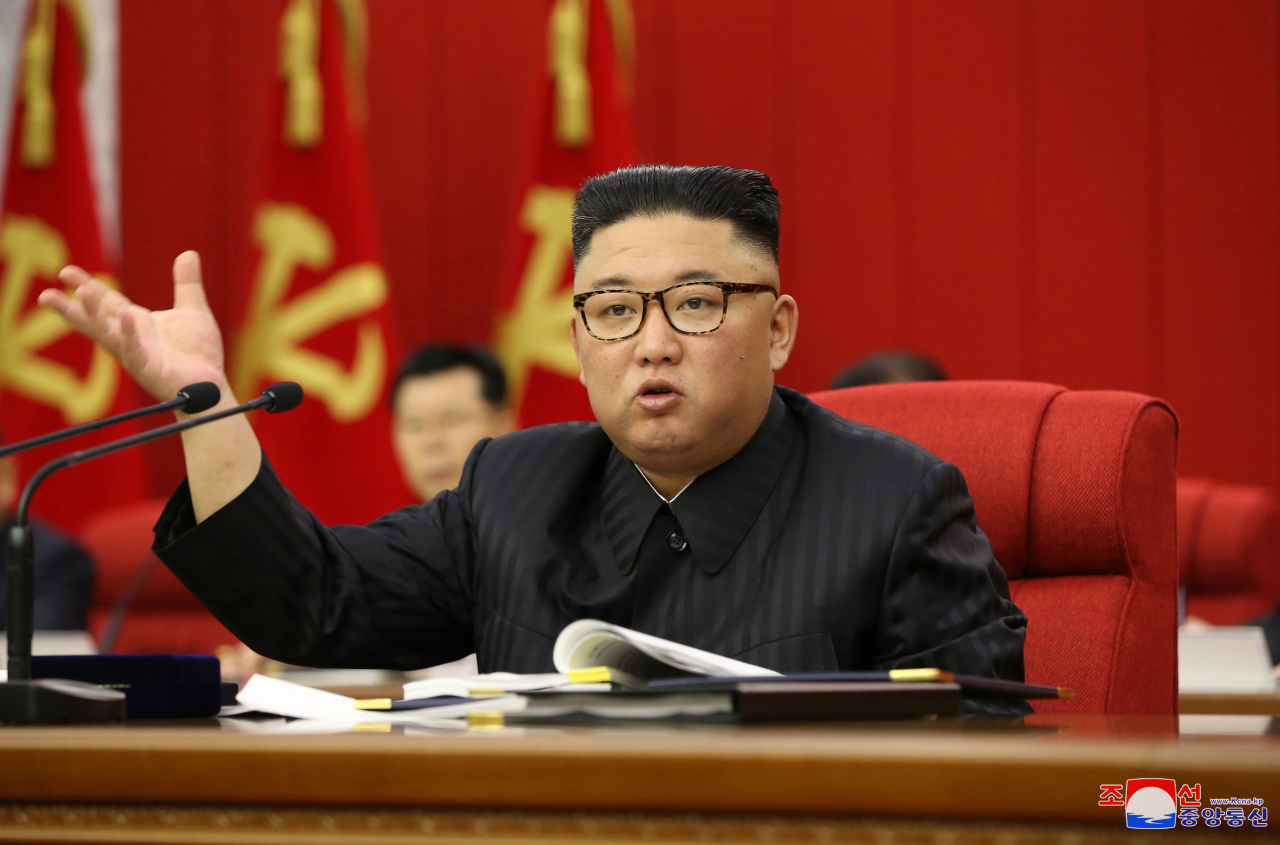North Korean leader Kim Jong-un is continuing his quest to tighten his grip on his country, and to create an image of it as a “normal state.” His new title as of 2021, president of the State Affairs of the Democratic People’s Republic of Korea, reflects this.
On June 29, 2016, Kim was named chairman of the newly established State Affairs Commission, the regime’s top branch of government and policymaking. The SAC replaced the National Defense Commission, the all-powerful organ during the tenure of his predecessor and father, Kim Jong-il.
When the younger Kim took over the position, it was seen as an occasion that legitimized his authority as the North’s head of state and commander in chief of its military. But more than that, it represented the third-generation leader’s ambition for the North to be seen as a “normal country” in the international community. That dream is still in the making.
Ever since Kim came to power in 2011 after his father’s sudden death, he has focused on solidifying his hereditary succession both at home and abroad. Kim dedicated the first five years of his rule to fighting for its legitimacy and securing his grip over the Pyongyang elites, the military brass and his own people -- often through brutal measures such as purging potential challengers, including his own uncle.
After those initial tumultuous years gave Kim some legitimacy, the leader started to look outward and consider how to look like a modern leader of a normal nation. In this regard, observers view the year 2016 as a symbolic starting point in Kim’s quest to make North Korea a normal state.
“In 2016, the SAC was established as a main governing body of the country, putting an end to the NDC, which symbolized the songun -- the military first policy -- where military officials were in charge of all the decision-making process and ruled the country,” said Hong Min, a senior researcher at the Korea Institute for National Unification. “With the new title as the SAC head, Kim was declaring that he will rule his country like a normal nation by institutionalizing the system, centering on the party-state system.”
Cheong Seong-chang, director of the Center for North Korean Studies at the Sejong Institute, echoed a similar stance, saying Kim’s new title revealed his willingness to be in control of overall state affairs, including the economy, the people’s livelihoods and foreign affairs, not only defense.
The chairman title also opened doors of diplomacy for Kim, who was still untested on the international stage.
“Kim’s new position served as an occasion to lighten up his image to be shown as a leader of a normal nation to the outside world, who takes care of all state affairs,” said Cheong.
It was the chairman title that gave him a seat among world leaders -- especially in 2018, when he held an unprecedented summit with former US President Donald Trump and met South Korean President Moon Jae-in three times.
Despite the stalled diplomacy since the collapse of the US-North Korea summit in Hanoi, and the deepening isolation of the North due to the COVID-19 pandemic and consequent strict border lockdown, Pyongyang has not stopped its efforts to present the country as a normal state. Early in February, the North’s state media outlet changed Kim’s English title from “chairman” to “president,” apparently to follow the practice of other countries such as China and Russia, whose heads of state are called presidents.
Kim’s increasing focus on the North Korean people, especially during major political events, is also seen as an effort to show that he is the leader of a normal country who cares about his people, observers say. At a military parade in October, Kim made a rare emotional speech to his people, thanking them and apologizing for the adversity as the country faces economic difficulty following widespread flooding, the COVID-19 pandemic and international sanctions against the regime.
In a recent revision to its party rulebook at the rare congress in January, the ruling Workers’ Party adopted a “people first” policy as its basic approach, deleting words like “songun” and others that indicated military priority.
The new party bylaws also created a new “first secretary” role, a de facto second-in-command under Kim, who was promoted to general secretary in January. Though it is still unclear who holds this new post, observers say Kim is delegating some of his duties to his aides, breaking away from one-man rule and steering the North toward a future as a more normal country.
By Ahn Sung-mi (
sahn@heraldcorp.com)





![[Herald Interview] 'Trump will use tariffs as first line of defense for American manufacturing'](http://res.heraldm.com/phpwas/restmb_idxmake.php?idx=644&simg=/content/image/2024/11/26/20241126050017_0.jpg)

![[Exclusive] Hyundai Mobis eyes closer ties with BYD](http://res.heraldm.com/phpwas/restmb_idxmake.php?idx=644&simg=/content/image/2024/11/25/20241125050044_0.jpg)
![[Herald Review] 'Gangnam B-Side' combines social realism with masterful suspense, performance](http://res.heraldm.com/phpwas/restmb_idxmake.php?idx=644&simg=/content/image/2024/11/25/20241125050072_0.jpg)